
How to get URL link on X (Twitter) App

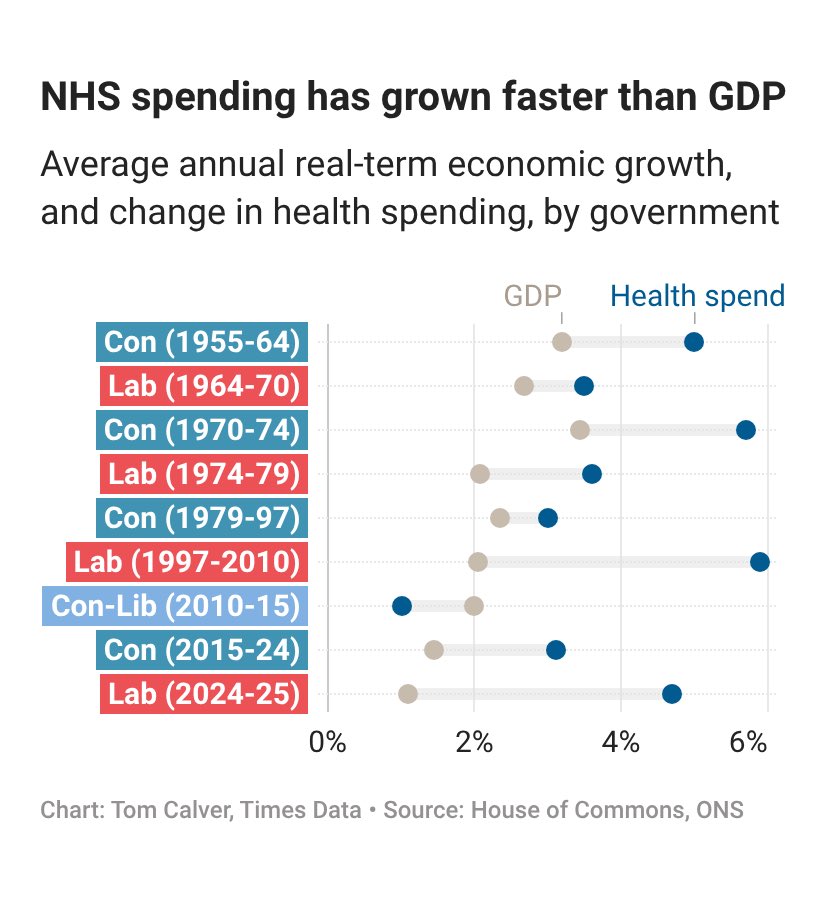
 The NHS budget in 2019 was £130bn. By 2025 it was £205bn. Even adjusted for inflation, that’s a rise of 24%
The NHS budget in 2019 was £130bn. By 2025 it was £205bn. Even adjusted for inflation, that’s a rise of 24%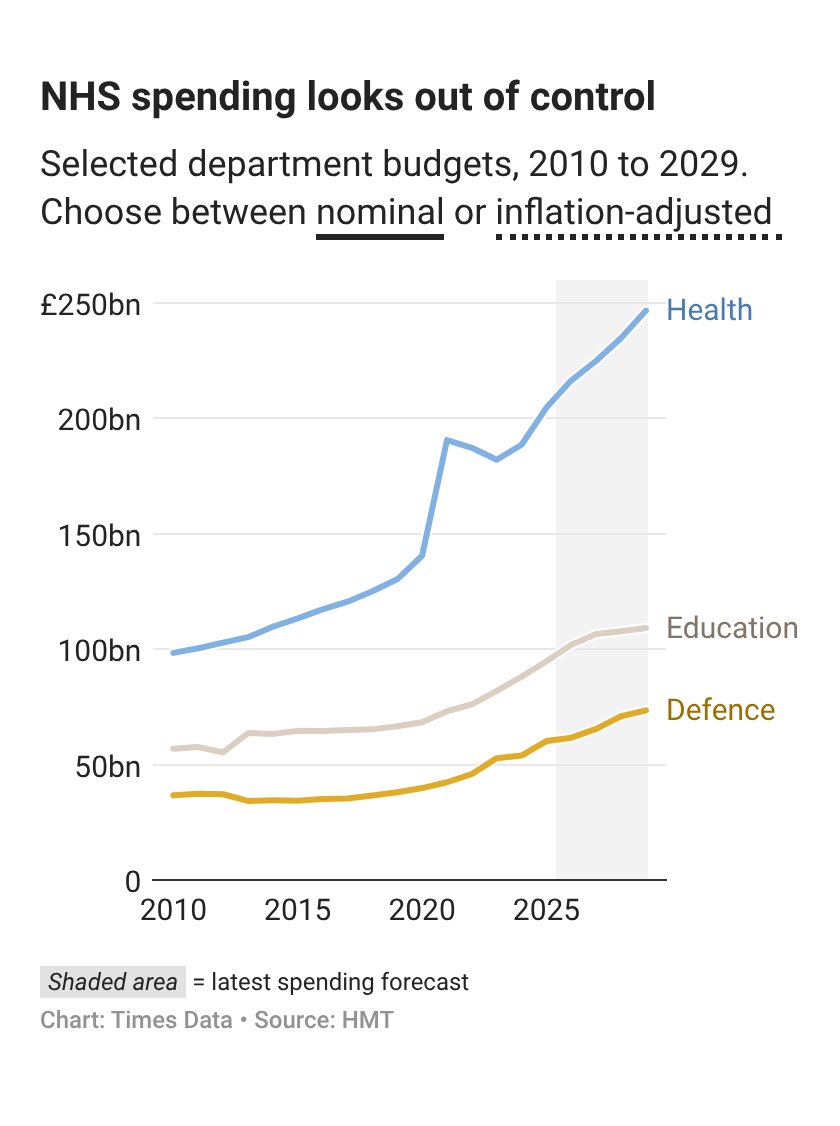
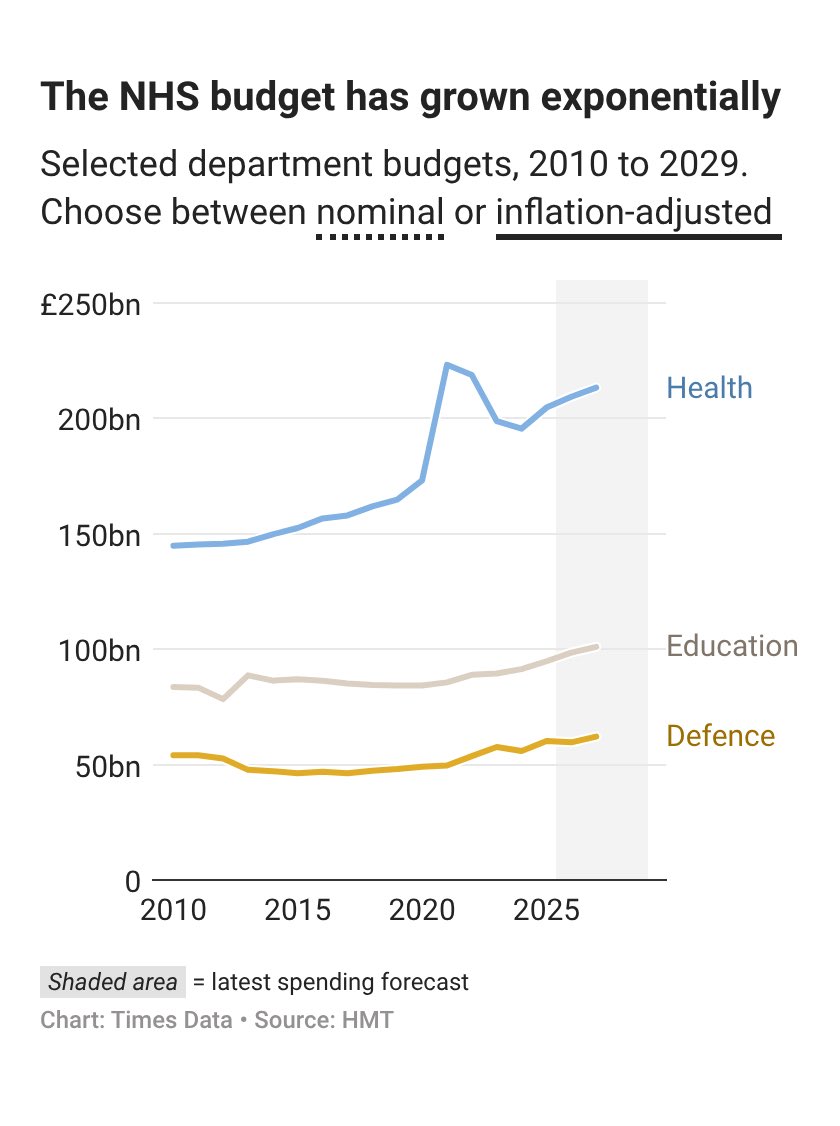
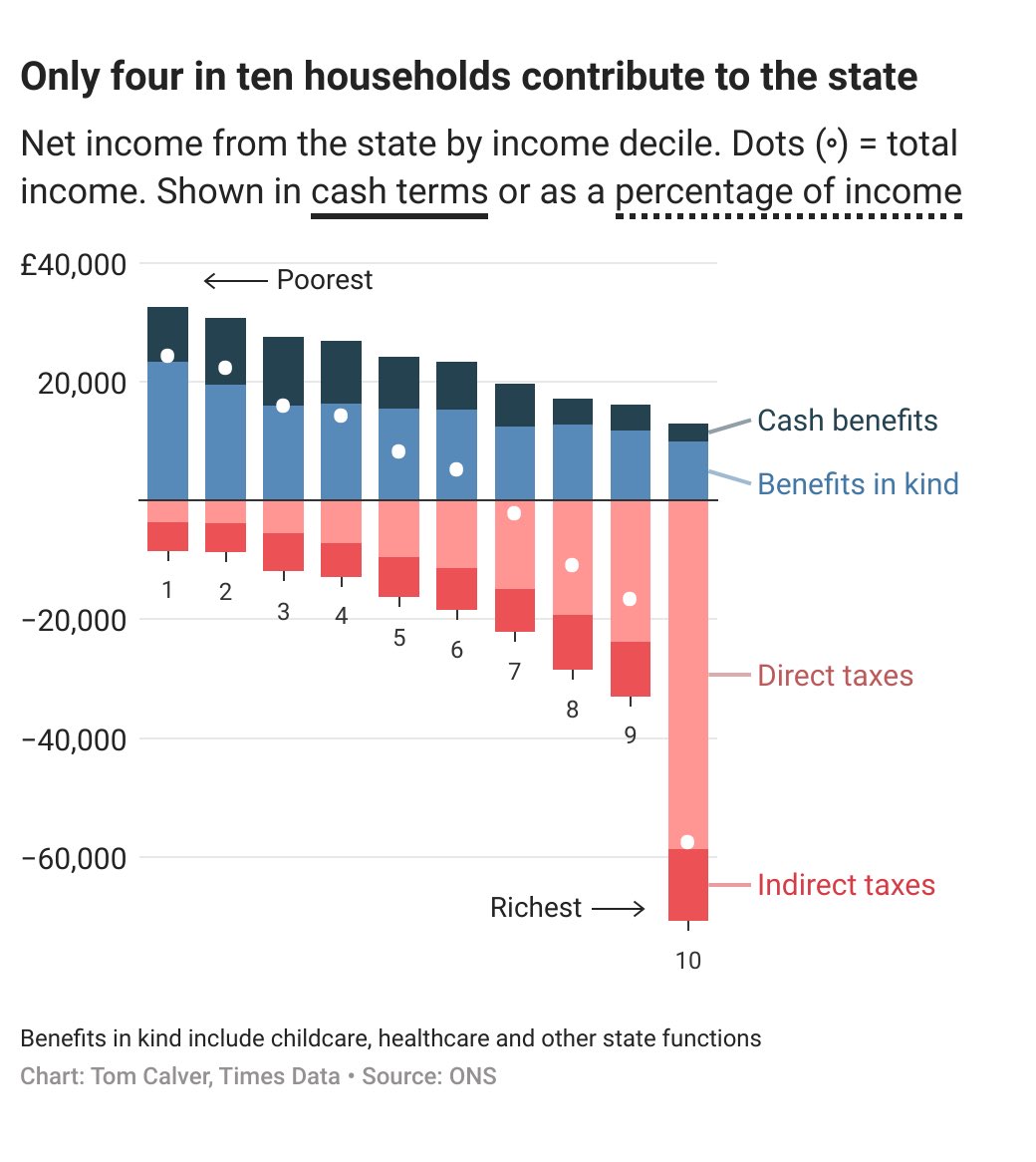
 As well as direct benefits and taxes, ONS data allows us to add up “benefits in kind” - GP visits, schooling, bus passes.
As well as direct benefits and taxes, ONS data allows us to add up “benefits in kind” - GP visits, schooling, bus passes.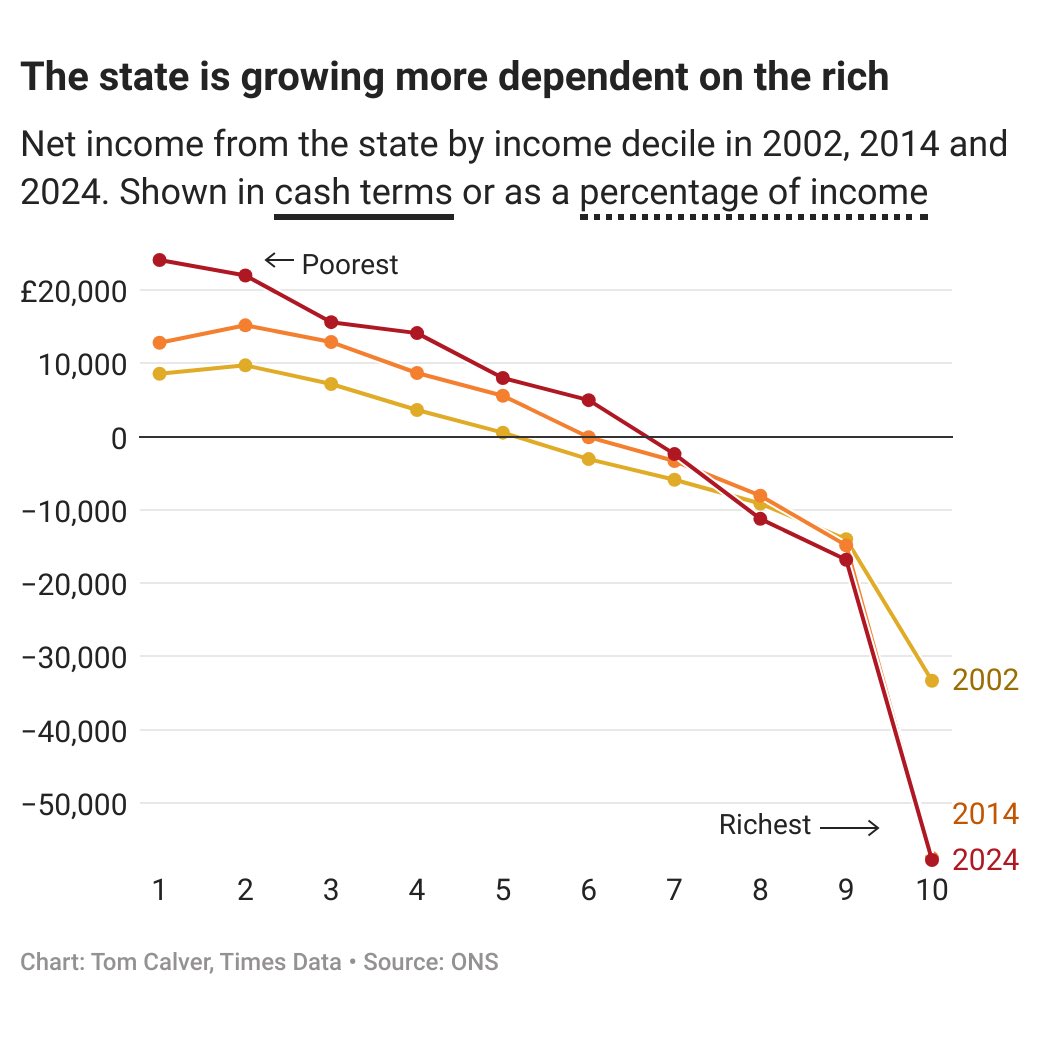

 When it comes to graduate earnings comparisons, we tend to focus on the earnings soon after graduating.
When it comes to graduate earnings comparisons, we tend to focus on the earnings soon after graduating. 

 This chart really surprised me. Back in 1990, the average worker lost 28% of their salary to tax and NI. But today, in high-tax Britain?
This chart really surprised me. Back in 1990, the average worker lost 28% of their salary to tax and NI. But today, in high-tax Britain? 

 After welfare and health, the 3rd-biggest category of spending isn’t education or defence, but debt interest
After welfare and health, the 3rd-biggest category of spending isn’t education or defence, but debt interest

 Why would changing kitchen knives make a difference?
Why would changing kitchen knives make a difference? 

 It’s easy to be down about the state of the country.
It’s easy to be down about the state of the country. 

 First - how can child poverty be at record levels, when living standards have improved drastically since the 60s?
First - how can child poverty be at record levels, when living standards have improved drastically since the 60s? 


 Using OECD headline figs for mean annual incomes, the differences are stark: £41,000 here, vs $77,000 in the US - about £61,000 in simple currency terms…
Using OECD headline figs for mean annual incomes, the differences are stark: £41,000 here, vs $77,000 in the US - about £61,000 in simple currency terms… 



 Doncaster - like most of Britain - feels stretched. I had a good chat with @NickFletcherMP about some of those pressures. But looking at the data, I struggled to find a measure in which Doncaster was more “full” than the average town
Doncaster - like most of Britain - feels stretched. I had a good chat with @NickFletcherMP about some of those pressures. But looking at the data, I struggled to find a measure in which Doncaster was more “full” than the average town 

 Back in 2010 @TonyPorterACTM introduced the “man box” as a helpful way of looking at how masculinity restricts male behaviour
Back in 2010 @TonyPorterACTM introduced the “man box” as a helpful way of looking at how masculinity restricts male behaviour

 Pay has been stagnant since the financial crisis, with especially poor growth in the public sector
Pay has been stagnant since the financial crisis, with especially poor growth in the public sector



 Since Labour's reforms of the early 2000s, the private sector already treats a number of NHS patients
Since Labour's reforms of the early 2000s, the private sector already treats a number of NHS patients 




 For decades, nursing has suffered from being thought of as a "vocation" which people "enter as a calling". Modern nursing has to rely on huge amounts of goodwill from staff who work in difficult conditions
For decades, nursing has suffered from being thought of as a "vocation" which people "enter as a calling". Modern nursing has to rely on huge amounts of goodwill from staff who work in difficult conditions



 How do we measure class? Income used to be a good barometer – Blair's "we're all middle class now" was a reference to growing affluence among middle earners, after all
How do we measure class? Income used to be a good barometer – Blair's "we're all middle class now" was a reference to growing affluence among middle earners, after all





 First, a word on the ultimate 'parachute' candidate. When Churchill lost his seat in Manchester in 1908, he was immediately invited to stand in Dundee.
First, a word on the ultimate 'parachute' candidate. When Churchill lost his seat in Manchester in 1908, he was immediately invited to stand in Dundee. 


 The polls – and circumstance – do look promising for Labour. "History suggests that any government presiding over a financial crisis doesn’t survive at the ballot box,” Professor John Curtice tells me.
The polls – and circumstance – do look promising for Labour. "History suggests that any government presiding over a financial crisis doesn’t survive at the ballot box,” Professor John Curtice tells me. 




 It's the myth that won't die. When C4's Benefits Street first aired in 2014, many Tories were enraged that people on benefits were able to afford luxuries like "widescreen TVs"
It's the myth that won't die. When C4's Benefits Street first aired in 2014, many Tories were enraged that people on benefits were able to afford luxuries like "widescreen TVs"

